Six GTA/IAs have been awarded Teaching Resource Development Grants to develop instructional materials, modules, cross-curriculum assessments, online learning innovations, or other resources that will enhance the quality and depth of undergraduate student learning at USC. Michelle Harris, Sewon Oh, Sowmya Raghu, Terrence Sheppard and the team of Rochelle Altman and Camryn Garrett will be designing teaching resources that can be incorporated into a specific course or curriculum, are capable of application and transformation into an array of disciplines and/or student learning levels, and can shared with CTE for broad distribution.
Rochelle Altman and Camryn GarrettHealth Promotion, Education, and Behavior Rochelle Altman holds a doctorate in school psychology from Loyola University, Chicago. Currently in her third year in the Health Promotion, Education, and Behavior (HPEB) doctoral program, Rochelle collaborates with Dr. Rachel Davis on research projects focused on marginalized and underserved communities. Rochelle's research interests center around maternal and child health and climate change. Camryn Garrett is a doctoral candidate in the Arnold School's department of Health Promotion, Education, and Behavior where she serves as a Graduate Research and Teaching Assistant. In her work she studies the role of social media on health while prioritizing health equity among marginalized populations. In teaching she strives to promote curiosity among her students through application and interdisciplinary instruction. Previously she earned her bachelor’s and master’s in public health from the University of Virginia in Charlottesville, Virginia. In the future she hopes to pursue an academic career to continue her work in teaching, research, and service. Project Description Within the university’s diversity, equity, and inclusion (DEI) efforts, there exists a gap in the promotion and application of intersectionality-focused efforts. This project aims to address that gap through developing resources to foster the integration of intersectionality frameworks within classrooms and academic disciplines at USC, research programs, and mentoring efforts. The proposed resources will be developed in collaboration with the Office of Access and Opportunity in response to needs identified. Teaching resources include informational background on intersectionality frameworks and their application, exercises that are applicable across disciplines, suggested language for inclusion in course syllabi, rubrics to audit syllabi, and guidance on integrating intersectionality into research and mentoring efforts. The proposed resources will also support the CTE’s Events and Certificate of Completions courses as a seminar will be developed that would encourage the incorporation of intersectionality into the classroom. These resources expand upon current efforts to protect and encourage diversity, in various contexts, across campus to improve campus climate and culture and ensure the university's climate is inclusive for all. |
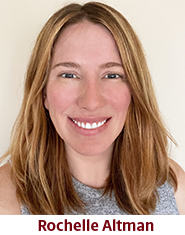 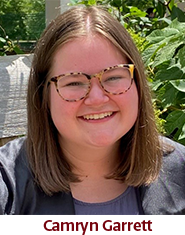 |
Michelle HarrisGeography Michelle Harris is a doctoral candidate in the Department of Geography and member of the Wind-sediment Interactions and Nearshore Dynamics Lab (WINDlab). Her research focuses on managed beach-dune systems in South Carolina and post-storm response and recovery at the meso-scale. She completed her B.S. in geography from Sam Houston State University and her M.S. from USC. She teaches introductory geography courses that introduce students to cartographic principles and geospatial technology. Project Description This project will develop a module for GEOG 105 - The Digital Earth, an introductory Geography course (Carolina Core ARP) in which students are introduced to geospatial data. Previously, students completed a final project using an open-source software, ArcGIS StoryMaps. With this grant, Michelle plans to adapt the final project to make it an iterative assignment throughout the semester which will facilitate experiential learning, embrace inclusivity and multicultural identity, by engaging students via “storifying” the course material to each student’s context. The StoryMap project assignment will include a collection of assigned modules separated on the ‘story’ temporally. Each module presents an opportunity for the student to illustrate their aptitude for that module’s content, and connect course material by generating express maps, adding imagery or other picture/video resources to the StoryMap they build through the semester and publish via weblink. This allows students to relate course concepts to their own life experiences, knowledge, and field of study. Although the initial intent is for the StoryMap to focus on material covered in GEOG 105, the prompts and construction of the StoryMap could be applied to other courses. |
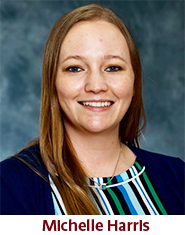 |
Sewon OhPsychology Sewon Oh earned her bachelor’s degree in psychology with a minor in neuroscience from the University of Minnesota, is currently a Ph.D. student at USC specializing in experimental psychology and a member of the Department of Psychology’s Affect and Cognition Lab. She has cultivated her experience in the quantitative approach to affective neuroscience, leveraging tools such as fMRI and machine learning. As she looks to the future, she aspires to continue research on emotional sensitization. Statistics in psychology serve a crucial role, from experiment design to data interpretation and communication; her teaching passion centers on the integration of statistical methods and scientific writing. Project Description Sewon’s project introduces several innovative assessment methods to her summer course, PSYC 221: Research Methods in Psychology, to address issues in teaching research methods and scientific writing, especially in the course’s accelerated, asynchronous online format. Asynchronous courses can unintentionally foster procrastination, resulting in an overwhelming pile-up of coursework material. To counter this, Sewon plans to implement the following assessments: 1) Topic-a-Day Digest, which engages students to distill their learning into a succinct, one-page summary to ensure consistent engagement with the coursework; 2) Triple Shuffle, which nurtures an understanding of scientific writing’s logical structure through interactive quizzes that involve filling gaps, rewriting, and reordering sentences or paragraphs from published manuscripts; and 3) Tiny Chat, a public discussion platform where students post parts of their paper for peer feedback, to simulate the collaborative discourse and review process of actual research scenarios. These activities are designed to foster self-motivated learning and equip students with the skills necessary for effective scientific writing. These tools are not limited to asynchronous sections or psychology classes and can be used in any scientific writing training course. |
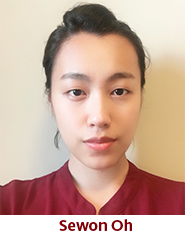 |
Sowmya RaghuMechanical Engineering Sowmya Raghu is a Ph.D. candidate in the Department of Mechanical Engineering. Under the guidance of Dr. Jamil Khan, her dissertation focuses on the development of data-driven tools to design and predict gas turbine engine performance. She holds a master’s degree in Aerospace Engineering with a minor in Computational Science from Pennsylvania State University and a bachelor’s in Aeronautical Engineering from Anna University in India. Currently serving as the Director of Makerspace within the College of Engineering and Computing, Sowmya is responsible for overseeing the development and implementation of innovative experiential learning, beyond the classroom and engineering education initiatives. Her teaching interest lies in experiential learning methodologies and the creation of technological tools tailored for engineering education. Project Description Sowmya is undertaking the redesign of the curriculum for ENCP 101 - Introduction to Engineering, a first-year honors course specifically designed for Aerospace and Mechanical Engineering students to enhance hands-on learning by incorporation of Makerspace resources. The primary objective is to integrate principles of experiential learning and design thinking into the course structure. This redesign aims to foster active student engagement, reflection, and feedback, ultimately enhancing the students' engineering skills and problem-solving abilities. To achieve this, Sowmya plans to implement a flipped classroom model that incorporates "Makerspace Modules". These modules encompass comprehensive lesson plans, instructional videos, training handouts, and assessment methodologies, all centered around utilizing Makerspace resources for CAD Design, 3D Printing, and mechatronics. By incorporating these practical modules, students will have hands-on experiences that reinforce theoretical concepts and encourage creativity and innovation within the engineering field. By ensuring use of the Makerspace in engineering education, the effectiveness in enhancing student hands-on learning can be greatly improved across all the departments within engineering and beyond STEAM fields. |
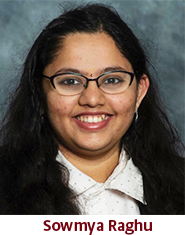 |
Terrence SheppardIntegrated Information Technology Terrence Sheppard is a doctoral student in the Department of Integrated Information Technology. Using a bachelor’s degree in computer and information Science from Troy University and a University of South Carolina MBA, he provided technology service to the manufacturing, banking and insurance industries internationally and domestically. Currently, he is focused on health information technology and human-computer interaction. He mentors afterschool middle and high school robotics teams, serves as a judge in the FIRST International Robotics competition, and is a MENSA test proctor. Project Description Terry’s project involves the ITEC 560 – Project Management Methods course, a senior year required course for the Bachelor of Science (B.S.) in Integrated Information Technology that is a prerequisite for the capstone course, ITEC 564 Project Management for Information Systems, as well as an elective course for the Certificate in Digital Studies and minor in Integrated Information Technology. Working with the current instructor’s supervision, the course will be improved to better align and prepare students for their path forward into ITEC 564 or their journey within other majors and later careers. The 2023 fall term will be replacing the textbook, which requires mapping and scheduling the course content to ensure it aligns with outcomes requirements of the Accreditation Board for Engineering and Technology (ABET), which will be accomplished with assistance from this grant. The ITEC 560 course is currently being offered both in-person and asynchronously online, and Terry’s project will develop and implement for the in-person course improved active learning strategies that encourages student engagement and reinforce the lecture, team-building exercises tailored for project management skill development, with each class period incorporating an activity building on learned project management skills for both individuals and groups. The end goal of the course will be student teams managing an assigned project using the life cycle skills needed for agile project management. |
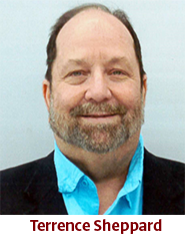 |
